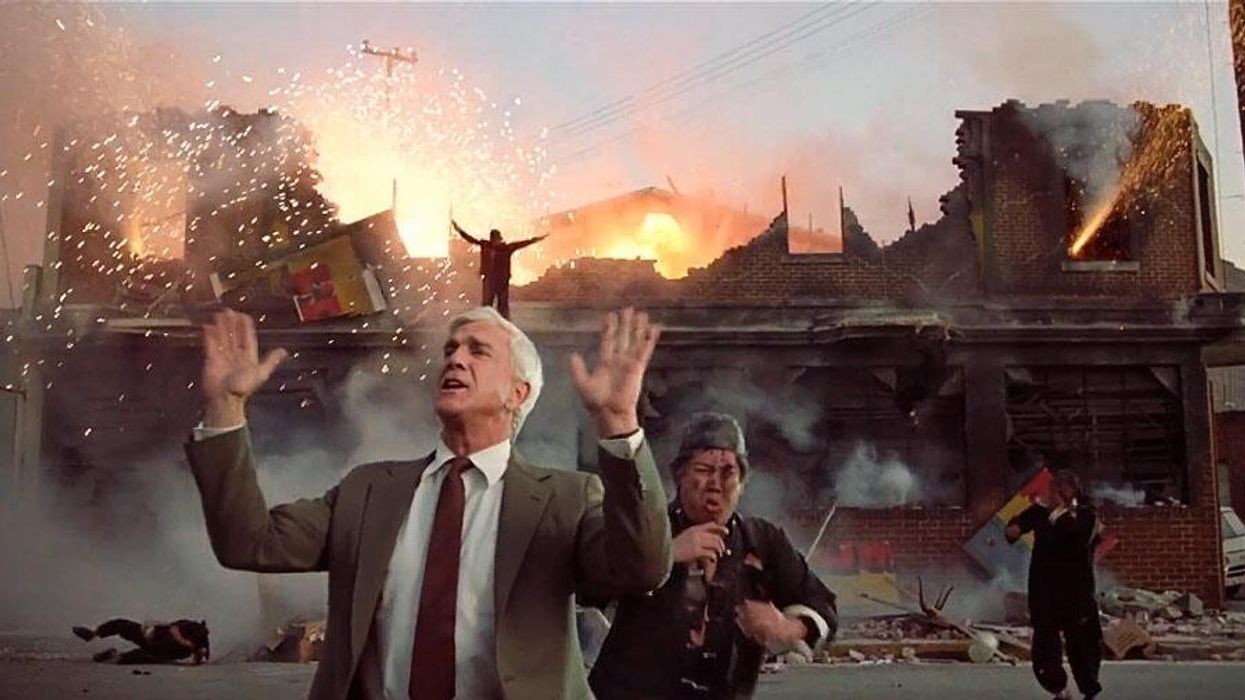Would You Sell Your Blood Plasma to Make a Movie?
It worked for this filmmaker.
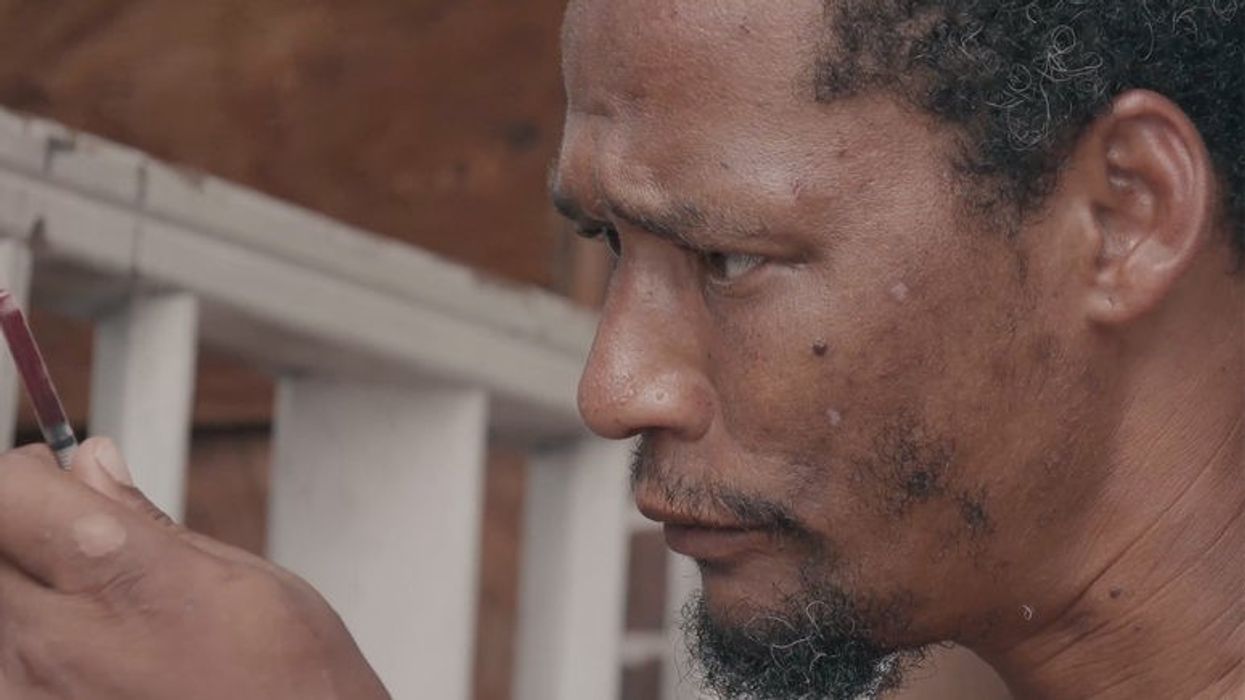
Until 2016, Hasan Oswald had been teaching English in Thailand and Spain. Then he started to fool around with a GoPro and iMovie. The next thing he knew, his short film had been tweeted by Stephen Fry, followed by NatGeo knocking on his proverbial door to join their crew.
What did he do next? Something about this moment told Oswald he was ready to become a filmmaker. So he set out to learn everything he could about cameras, editing, and production from such fabled resources as YouTube and No Film School.
Many harrowing hours of work and bi-weekly selling of his blood plasma later, he finished his first feature film Higher Love, a gut-wrenching, visually gripping documentary that won the Slamdance Grand Jury award and is now available to watch on all the major streaming platforms.
Oswald sat down with No Film School to explain his process.
No Film School: Why did you decide to make this film, and how did you meet the people in the story like Daryl and Nani?
Hasan Oswald: I wanted to make a film about the lost American Dream of a Post-Industrial America, but as an English teacher with no experience, I had no idea how.
So, inspired by the intimate access that directors like Zana Brinksi and Ross Kauffman brought to Born Into Brothels and the Rebel Without a Crew ethos of Robert Rodriguez, I simply bought a new camera, drove the two hours from New York City, and began knocking on the doors of trap houses and heroin dens.
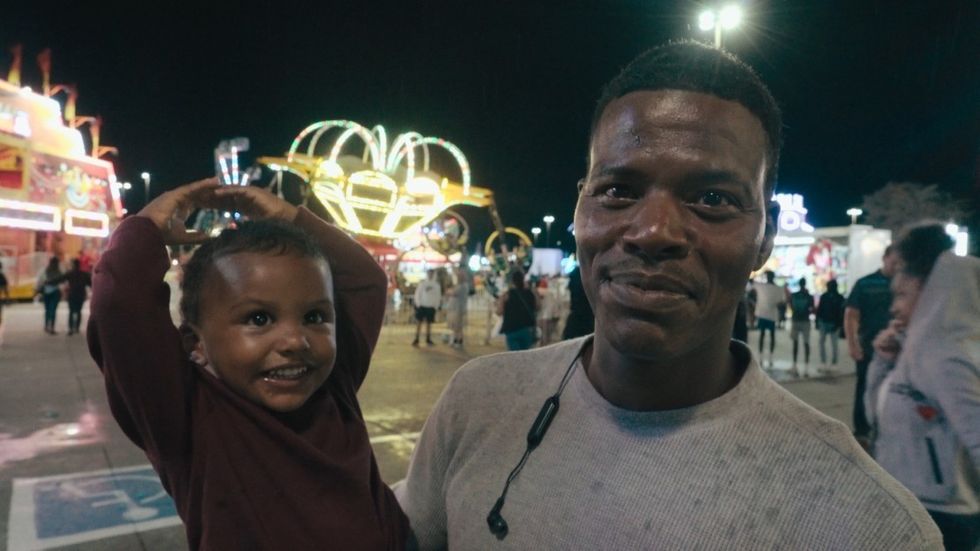
NFS: Once you decided to embark on your first film, how did you learn to direct, and how did you finance it?
Oswald: I simply bought a camera and went out into the field. From there, I would spend all my time not shooting watching YouTube tutorials or listening to NFS-esque podcasts to learn everything from editing and cinematography to distribution and festival PR.
Without any budget or crew, I would “rent” gear and return it on the 29th day, rack up no-interest credit cards, and sell my blood-plasma twice a week to make ends meet.
NFS: What tools did you use to shoot this documentary? What was your crew like?
Oswald: I shot 99% of it on the Sony A7sII with a 24-70 Zeiss lens. Sound was an issue which I certainly overlooked and then paid for in post. I thought I would be able to mic up my characters but that proved to be nearly impossible as I’m sure you can understand if you watch the film.
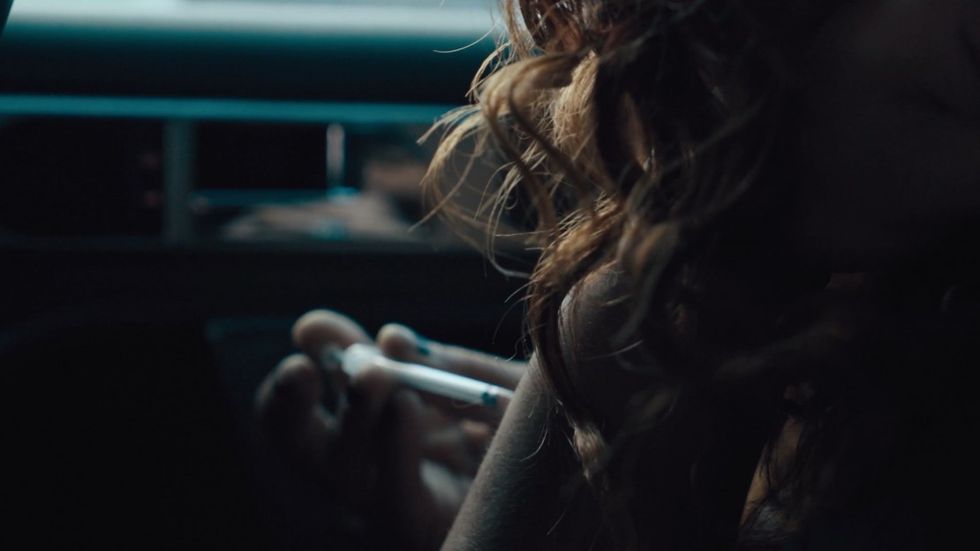
NFS: How do you deal with access and permission for this film? For example, we find the camera in a room with two women doing drugs at one point, and later in a rehab van. These are not normally welcome areas, so what was your approach?
Oswald: As someone with next to no professional experience, I didn’t know what I didn’t know. So I just filmed anything and everything and dealt with issues later as they arose. I also approached this whole process with a “fake it till you make it ethos." Or “if you believe it they believe it” approach. I learned that if I went into a situation like I belonged there and knew what I was doing, nobody really questioned what I was doing there or if I had the proper permissions/clearance.
The drug scenes, of course, were challenging for other, more complex reasons, but from an access point of view, I was lucky to have the characters' trust from the get-go as they let me into their worlds and then became comfortable enough to almost forget that I was there.
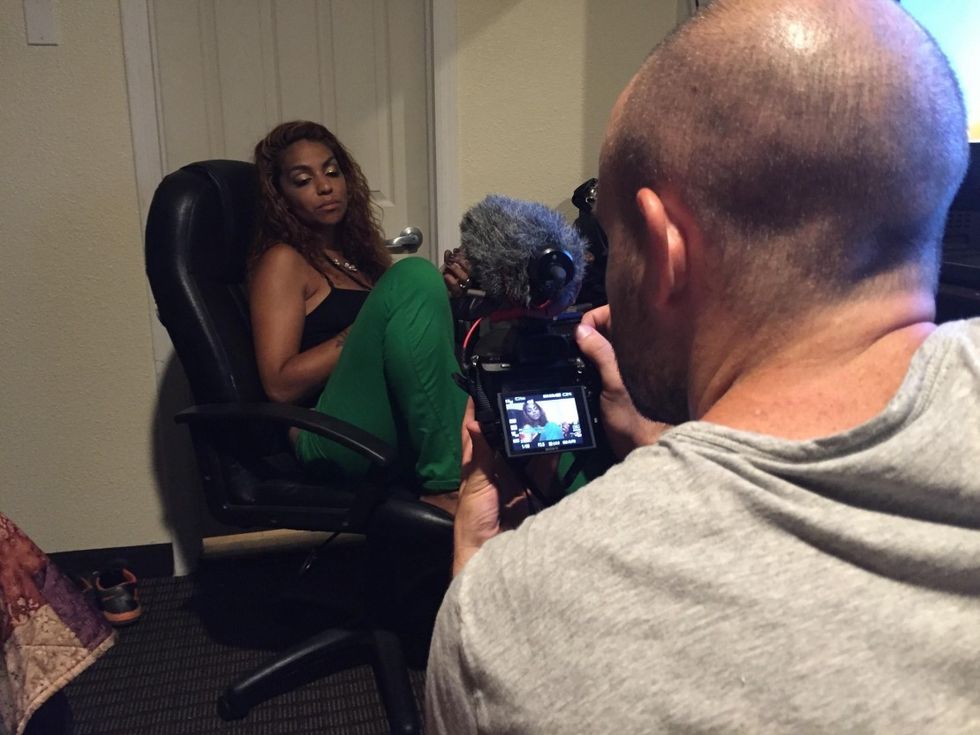
NFS: You witness many tricky moments making this film: people doing drugs who shouldn’t be, or being caught in the middle of terrible arguments between subjects. Were you ever tempted to get involved? What is your philosophy about filming versus participating in the lives of those you are documenting?
Oswald: I’ve found that toeing the line between exploitation and social realism is kind of the cruel crux of documentary filmmaking. Of course we all want to be flies on the wall and let these subjects act of their own free will in all manners and circumstances, but unfortunately, and especially for a film like this when children are involved in dangerous situations, you do have to break the fourth wall. For example, I had to intervene in a few situations where the baby would get his hands on cigarettes or even syringes.
Otherwise, as it goes for the adults in the film, making conscious (or unconscious) decisions while using drugs, the only thing myself and producers did to prepare for any intervention was get trained in administering NARCAN, in the event of a heroin overdose. Thankfully we never had to do that.
Overall, I found that no matter your comfort level in a scene or that character’s comfort level with you, whenever you put a camera in the room, something changes. People perk up, they become self-conscious on some level no matter how long you have filmed or known them. But as my relationships with my subjects strengthened and they really began to trust me and my vision, I was able to draw closer to a pure vérité or feeling or realism.
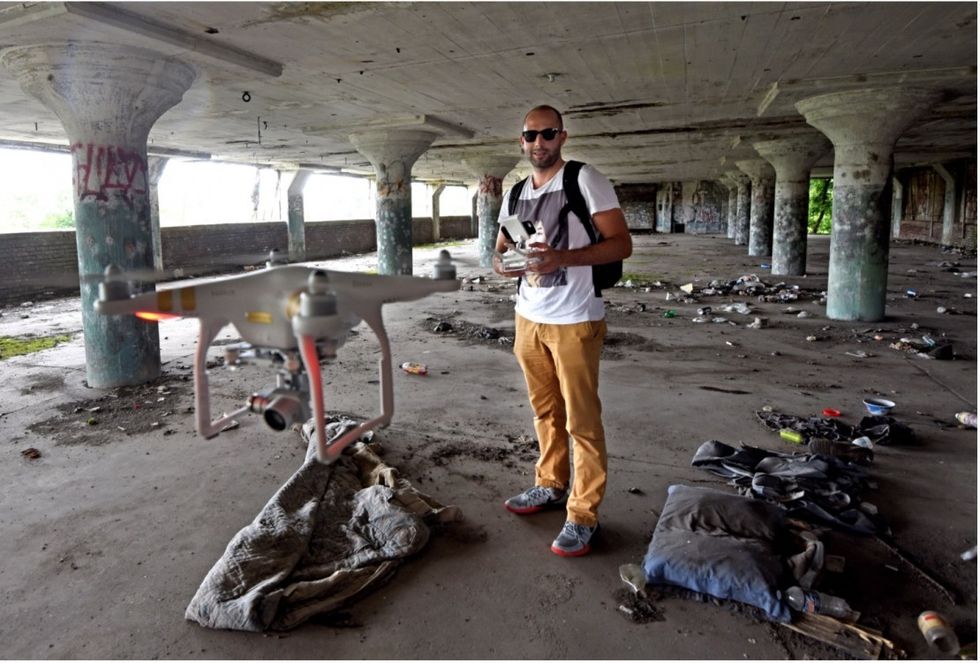
NFS: The film usesvérité footage, a drone. There are visceral montages not specific to the subjects but that paint a picture of the place and time. Tell us about your storytelling strategy.
Oswald: Stylistically, we realized that this wasn’t going to play correctly as a straightforward, traditional documentary. So with the montages and more stylistic choices, we wanted to flirt with the relationship between documentary and narrative and blur that distinction, while also wanting to convey a touch of the chaotic, disconnected world of addiction in which we were living.
We also made the decision early on to not include any sit-down interviews or talking head scenes in any form. We wanted the characters to tell their story, through our lens, without policy wonks or politics shifting the focus.
NFS: In Higher Love, we see the haunting struggle of people caught in the grip of the opioid epidemic and imploding post-industrial cities. This is clearly an important story. Who do you think needs to see it, and what do you see as the power of the camera?
Oswald: The opioid epidemic is certainly the main thread in this film, but if you dive a little deeper, I hope we showed that this post-industrial decay and the ensuing systemic neglect of these fallen American cities is not just Camden, New Jersey. It’s Flint, Detroit, Gary, and on and on.
It was long after I stepped foot in Camden that I realized this couldn’t be about politics or policy, experts or statistics. The story had to be about the people—the ones whose lives illustrate the nuanced toll that our imploding post-industrial cities levy on those living within them.
An earlier iteration of the film was called Below the Brine, after a Walt Whitman poem. Whitman, a Camden native, wrote about an entire world that lives below the surface of the ocean, right in our midst, but completely out of sight.
That’s Camden. A world that has been ignored for decades. And hopefully, our cameras will be able to relay some of this back above the surface for the rest of the world to see.
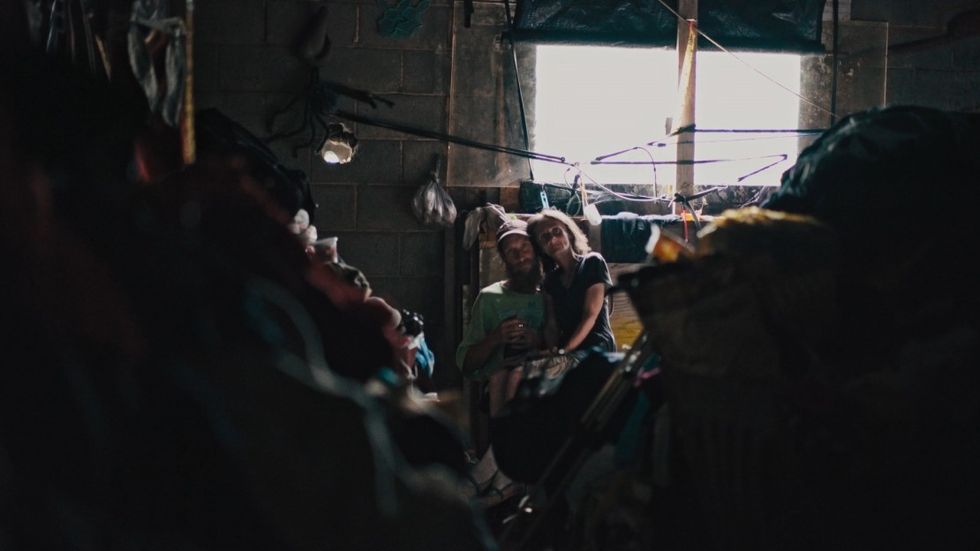
NFS: After making your first feature documentary in this way, what’s your advice to others?
Oswald: I’ve found the film world to be very hierarchical. Very “pay your dues” and start at the bottom and claw your way up. But I would urge anyone just entering the film world or who feels stuck, to ignore this status quo and just go make that project you’ve been putting off.
We are in a time where incredible cameras are cheap and can fit in your backpack. You can learn everything about that camera for free on youtube and through podcasts! And when you’re done with that you can learn production and editing through other public forums.
I don’t think that you need to pay your dues or wait your turn anymore. And I think that terrifies "them."
Thank you, Hasan!
Check out Higher Love for yourself here.
Header image of one-time Camden drug Kingpin, Iman, a subject in 'Higher Love' directed by Hasan Oswald.
